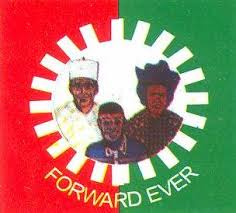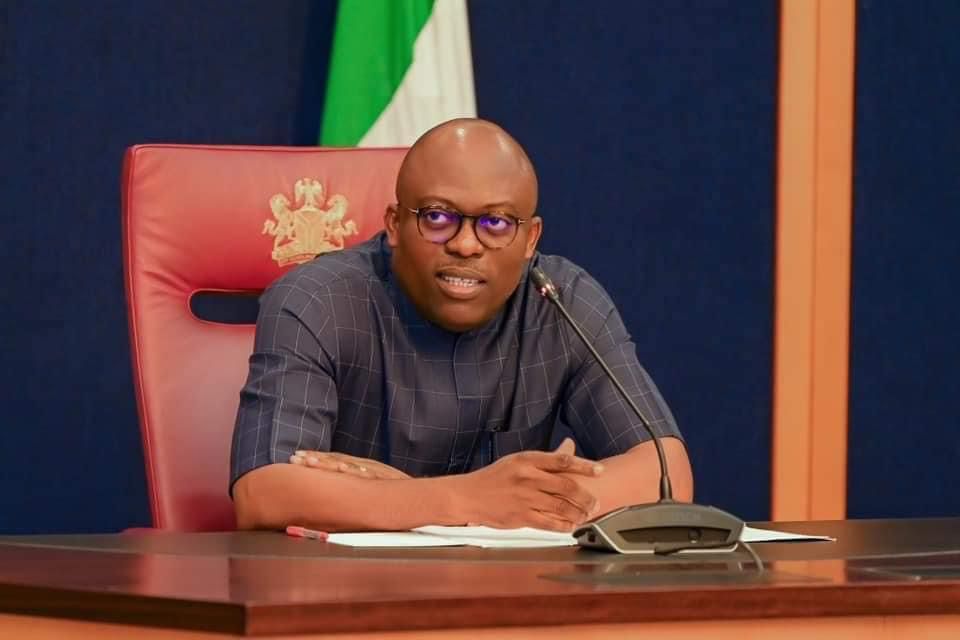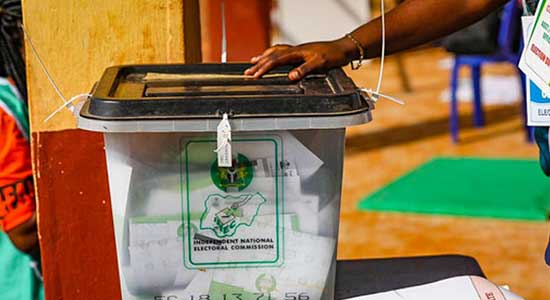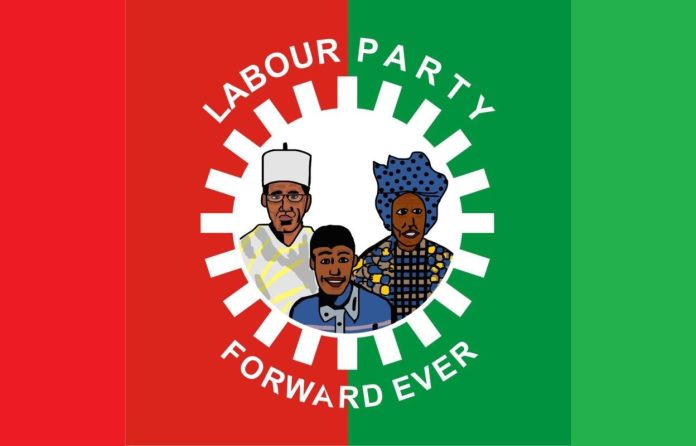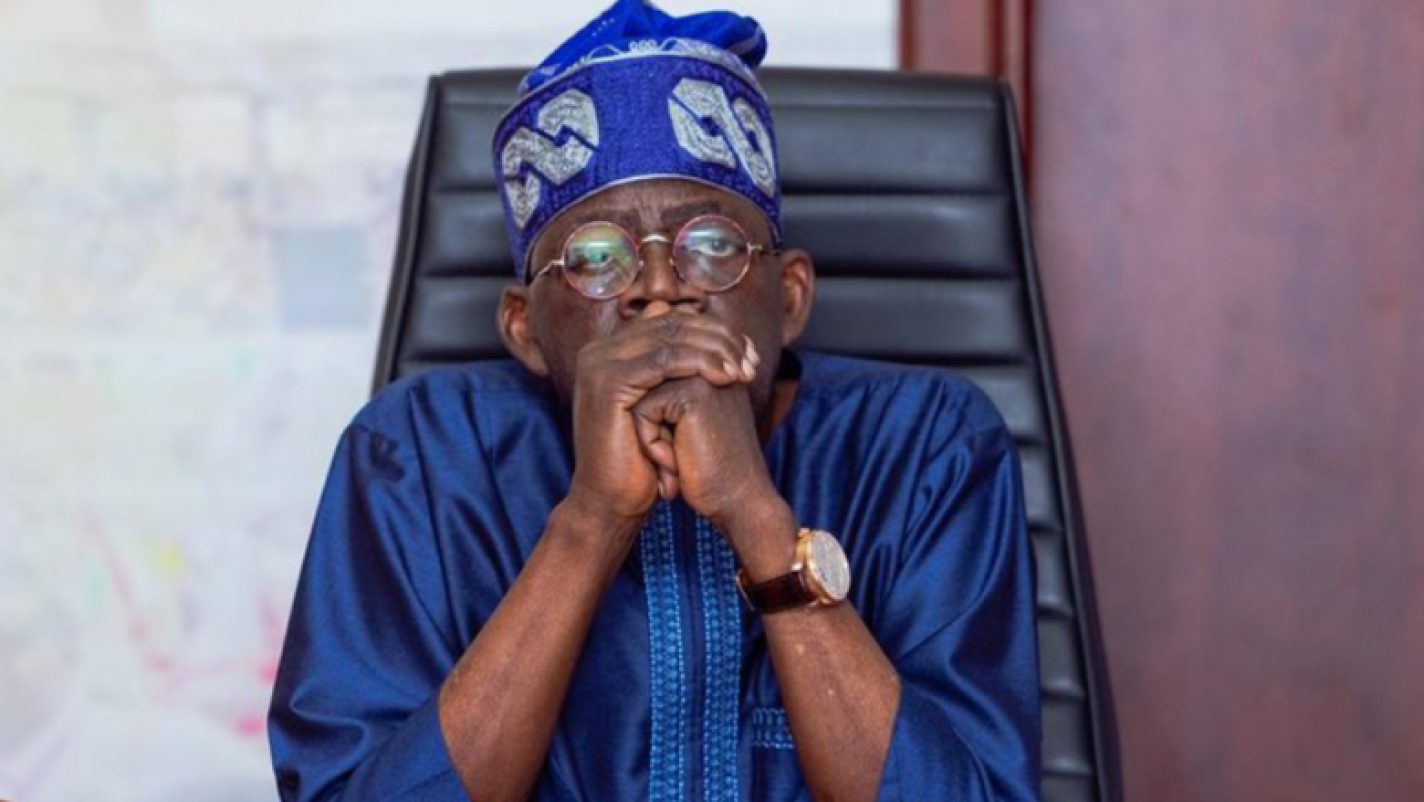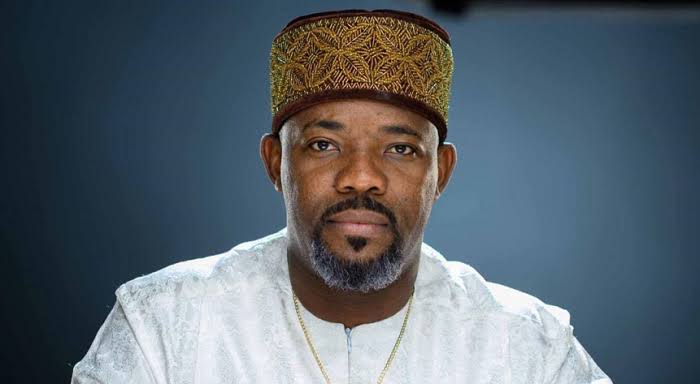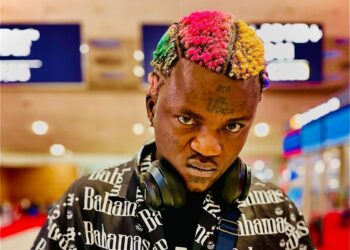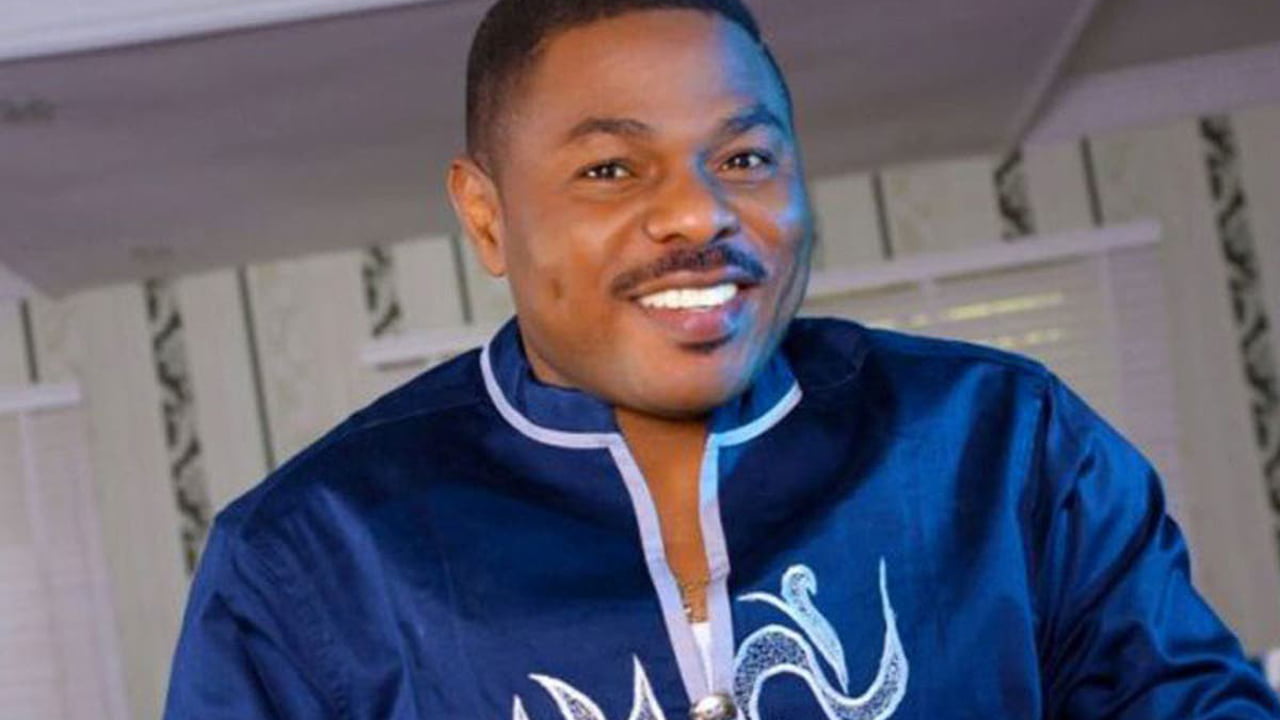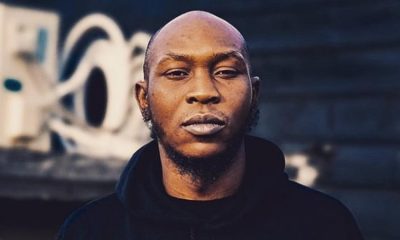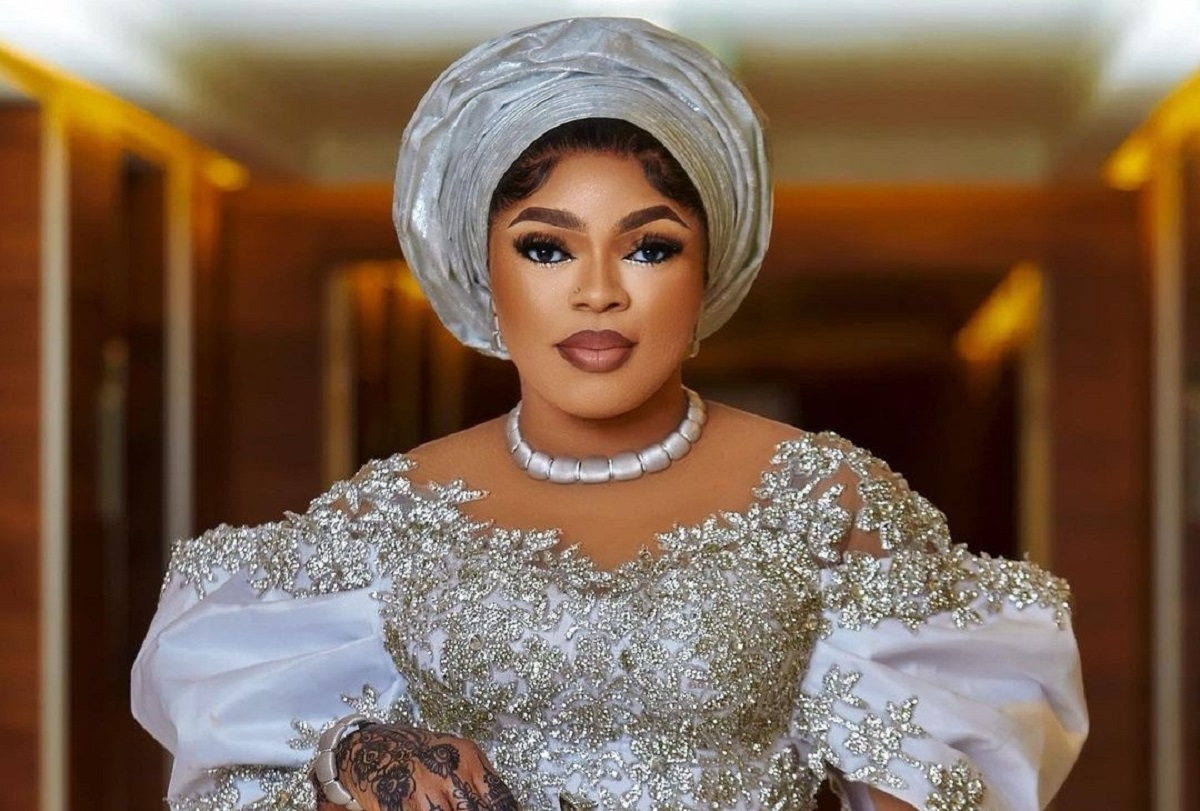The opinions presented in this piece are those of the author and do not necessarily represent InTv Media’s editorial position.Thank you.
Political scientists define “nation” as a people with a shared sense of history and identity. The aspiration is to turn a state into a nation-state. Some will instinctively argue that Nigeria is a not a nation but a country, basically a
geographical expression or a political entity. In the well-quoted words of Jeremiah
Oyeniyi Obafemi Awolowo (SAN), a nationalist, as discovered in his book, ‘Path to Nigerian Freedom’ (1947), “Nigeria is not a nation. It is a mere geographical expression. There are no ‘Nigerians’ in the same sense as there are ‘English’, ‘Welsh,’ or ‘French’.” However, increasingly, ‘nation’ and ‘country’ are now used interchangeably, perhaps as a reflection of a changing world, particularly the era of the fourth industrial revolution.

Interestingly, as the build-up to the February, 2023 general elections gains momentum. It is a common norm and a generally accepted fact that every election is determined by those citizens who show up to cast their votes. By implication, therefore, the ideology, conviction, aspiration of such citizens ultimately influences the direction of the choices they make. Many, out of carelessness and ignorance of the law of ‘cause and effect’ step out to make such choices thoughtlessly, without any regards to future consequences. It is thoughtless to base an electoral choice on primordial sentiments of ethnicity and religion, rather than on the well scrutinized, interrogated and verified credentials of the candidates.

Today, Nigeria, the ‘giant’ of Africa is laced with some of the most obstinate conflicts, most of them constructed from differences in religious and ethnic identities. Religious and ethnic nationalism has led to conflicts about control of state power, unequal allocation of resources, citizenship issues, state collapse, economic decline and ethno-religious clashes. Nigeria is synonymous with deep divisions which cause major political issues to be vigorously and violently contested along the lines of intricate ethnic, religious and regional divisions. There is ethnic and religious coloration to everything in Nigeria. Policies of government in Nigeria are also, unfortunately, formulated and implemented along these lines. This brings to fore the question: if we are really aiming at creating a nation, why do we have a policy in which our forms for official engagements still carry lines enquiring about the religion, state of origin/tribe of the applicant?
Before and after her independence, Nigeria has experienced an avalanche of ethno-religious conflicts that resulted in loss of lives and unquantifiable damages of properties. No doubt, the violent nature of ethno-religious conflicts, which often take the form of riots, sabotage, assassination, armed struggles, guerilla warfare and secession in Nigeria, have implications on the political and economic development of the country. Hence, the low level of socio-economic and political development in the country, with consequences for rising ethnic and religious bigotry in the country. Invariably, the country had its outstanding potential for greatness in some areas, there was still the heartfelt cry from the people for a way out of the muddle of dysfunctional social political system.
Flowing from the foregoing, let us take an example from recent occurrence in Britain as an advanced democracy. Yesterday Richi Sunak became the prime minister of UK. He is Hindu and an active practitioner of Hinduism. He is Indian and despite ambition, he did not change his religion. Instead, what set the basis for his achievement is parental choice and societal idiosyncrasy; schooling at Winchester, a high profile public school and ending up at Cambridge; an incubator for British prime ministers. He and his family had put together a combination of factors that promoted merit and almost completely masked his being of Indian origin. His Indian community saw greatness in him and supported voting him into parliament which is a major stepping stone for his present achievements. He has earned his position through a combination of training, meritocracy and character (tenacity).
In our own country, we are still judging ourselves though the lens of the fallout of slavery and colonialism and making religion and ethnicity factors in our political and leadership assessment and choice. Christianity, Islam, nationality (tribe if you like) etc should be of no relevance to us and have no place in our political choice in the same way as the 3-piece suit or skirt and blouse are to owambe parties. If a Hindu can become the prime minister of UK, there should be no argument in our society for political choice based on religion. We should look at antecedence in choosing our political leaders, develop merit-based chart of assessment and educate our people to understand the relevance and significance of the criteria for leadership in our complex conundrum towards national development.
Conclusively, permit me to use the words of
Nelson Rolihlahla Mandela, a South African anti-apartheid activist who served as the first president of South Africa from 1994 to 1999. Madiba had famously said: “I have cherished the ideal of a democratic and
free society in which all persons live together in harmony and with equal opportunities.” These divine words should be engraved in the upbringing and formal training of all of us, even if we have to achieve this through rigorous compulsory adult education. Finally, this is the time to rebuild our beloved country Nigeria, we need to discourage ethnic profiling, religious bigotry and any form of divisiveness. We should shun desperate politicians that are jumping from one church/mosque to the other, while aiming to profit from our current divisive orientation. If a Hindu that has remained true to his culture and religion publicly can become the prime minister of a society with majority christians and white Anglo-saxons, we Nigerians need to reflect on the emphasis on religion and ethnicity in our politics.
NIGERIA IS NOT FINISHED! NIGERIA SHALL BE VERY GREAT AGAIN IN THE WORLD AND THE WESTERN PEOPLE WILL BEG FOR A VISA TO VISIT.
Richard Odusanya
The opinions presented in this piece are those of the author and do not necessarily represent InTv Media’s editorial position.Thank you.
Political scientists define “nation” as a people with a shared sense of history and identity. The aspiration is to turn a state into a nation-state. Some will instinctively argue that Nigeria is a not a nation but a country, basically a
geographical expression or a political entity. In the well-quoted words of Jeremiah
Oyeniyi Obafemi Awolowo (SAN), a nationalist, as discovered in his book, ‘Path to Nigerian Freedom’ (1947), “Nigeria is not a nation. It is a mere geographical expression. There are no ‘Nigerians’ in the same sense as there are ‘English’, ‘Welsh,’ or ‘French’.” However, increasingly, ‘nation’ and ‘country’ are now used interchangeably, perhaps as a reflection of a changing world, particularly the era of the fourth industrial revolution.

Interestingly, as the build-up to the February, 2023 general elections gains momentum. It is a common norm and a generally accepted fact that every election is determined by those citizens who show up to cast their votes. By implication, therefore, the ideology, conviction, aspiration of such citizens ultimately influences the direction of the choices they make. Many, out of carelessness and ignorance of the law of ‘cause and effect’ step out to make such choices thoughtlessly, without any regards to future consequences. It is thoughtless to base an electoral choice on primordial sentiments of ethnicity and religion, rather than on the well scrutinized, interrogated and verified credentials of the candidates.

Today, Nigeria, the ‘giant’ of Africa is laced with some of the most obstinate conflicts, most of them constructed from differences in religious and ethnic identities. Religious and ethnic nationalism has led to conflicts about control of state power, unequal allocation of resources, citizenship issues, state collapse, economic decline and ethno-religious clashes. Nigeria is synonymous with deep divisions which cause major political issues to be vigorously and violently contested along the lines of intricate ethnic, religious and regional divisions. There is ethnic and religious coloration to everything in Nigeria. Policies of government in Nigeria are also, unfortunately, formulated and implemented along these lines. This brings to fore the question: if we are really aiming at creating a nation, why do we have a policy in which our forms for official engagements still carry lines enquiring about the religion, state of origin/tribe of the applicant?
Before and after her independence, Nigeria has experienced an avalanche of ethno-religious conflicts that resulted in loss of lives and unquantifiable damages of properties. No doubt, the violent nature of ethno-religious conflicts, which often take the form of riots, sabotage, assassination, armed struggles, guerilla warfare and secession in Nigeria, have implications on the political and economic development of the country. Hence, the low level of socio-economic and political development in the country, with consequences for rising ethnic and religious bigotry in the country. Invariably, the country had its outstanding potential for greatness in some areas, there was still the heartfelt cry from the people for a way out of the muddle of dysfunctional social political system.
Flowing from the foregoing, let us take an example from recent occurrence in Britain as an advanced democracy. Yesterday Richi Sunak became the prime minister of UK. He is Hindu and an active practitioner of Hinduism. He is Indian and despite ambition, he did not change his religion. Instead, what set the basis for his achievement is parental choice and societal idiosyncrasy; schooling at Winchester, a high profile public school and ending up at Cambridge; an incubator for British prime ministers. He and his family had put together a combination of factors that promoted merit and almost completely masked his being of Indian origin. His Indian community saw greatness in him and supported voting him into parliament which is a major stepping stone for his present achievements. He has earned his position through a combination of training, meritocracy and character (tenacity).
In our own country, we are still judging ourselves though the lens of the fallout of slavery and colonialism and making religion and ethnicity factors in our political and leadership assessment and choice. Christianity, Islam, nationality (tribe if you like) etc should be of no relevance to us and have no place in our political choice in the same way as the 3-piece suit or skirt and blouse are to owambe parties. If a Hindu can become the prime minister of UK, there should be no argument in our society for political choice based on religion. We should look at antecedence in choosing our political leaders, develop merit-based chart of assessment and educate our people to understand the relevance and significance of the criteria for leadership in our complex conundrum towards national development.
Conclusively, permit me to use the words of
Nelson Rolihlahla Mandela, a South African anti-apartheid activist who served as the first president of South Africa from 1994 to 1999. Madiba had famously said: “I have cherished the ideal of a democratic and
free society in which all persons live together in harmony and with equal opportunities.” These divine words should be engraved in the upbringing and formal training of all of us, even if we have to achieve this through rigorous compulsory adult education. Finally, this is the time to rebuild our beloved country Nigeria, we need to discourage ethnic profiling, religious bigotry and any form of divisiveness. We should shun desperate politicians that are jumping from one church/mosque to the other, while aiming to profit from our current divisive orientation. If a Hindu that has remained true to his culture and religion publicly can become the prime minister of a society with majority christians and white Anglo-saxons, we Nigerians need to reflect on the emphasis on religion and ethnicity in our politics.
NIGERIA IS NOT FINISHED! NIGERIA SHALL BE VERY GREAT AGAIN IN THE WORLD AND THE WESTERN PEOPLE WILL BEG FOR A VISA TO VISIT.
Richard Odusanya
The opinions presented in this piece are those of the author and do not necessarily represent InTv Media’s editorial position.Thank you.
Political scientists define “nation” as a people with a shared sense of history and identity. The aspiration is to turn a state into a nation-state. Some will instinctively argue that Nigeria is a not a nation but a country, basically a
geographical expression or a political entity. In the well-quoted words of Jeremiah
Oyeniyi Obafemi Awolowo (SAN), a nationalist, as discovered in his book, ‘Path to Nigerian Freedom’ (1947), “Nigeria is not a nation. It is a mere geographical expression. There are no ‘Nigerians’ in the same sense as there are ‘English’, ‘Welsh,’ or ‘French’.” However, increasingly, ‘nation’ and ‘country’ are now used interchangeably, perhaps as a reflection of a changing world, particularly the era of the fourth industrial revolution.

Interestingly, as the build-up to the February, 2023 general elections gains momentum. It is a common norm and a generally accepted fact that every election is determined by those citizens who show up to cast their votes. By implication, therefore, the ideology, conviction, aspiration of such citizens ultimately influences the direction of the choices they make. Many, out of carelessness and ignorance of the law of ‘cause and effect’ step out to make such choices thoughtlessly, without any regards to future consequences. It is thoughtless to base an electoral choice on primordial sentiments of ethnicity and religion, rather than on the well scrutinized, interrogated and verified credentials of the candidates.

Today, Nigeria, the ‘giant’ of Africa is laced with some of the most obstinate conflicts, most of them constructed from differences in religious and ethnic identities. Religious and ethnic nationalism has led to conflicts about control of state power, unequal allocation of resources, citizenship issues, state collapse, economic decline and ethno-religious clashes. Nigeria is synonymous with deep divisions which cause major political issues to be vigorously and violently contested along the lines of intricate ethnic, religious and regional divisions. There is ethnic and religious coloration to everything in Nigeria. Policies of government in Nigeria are also, unfortunately, formulated and implemented along these lines. This brings to fore the question: if we are really aiming at creating a nation, why do we have a policy in which our forms for official engagements still carry lines enquiring about the religion, state of origin/tribe of the applicant?
Before and after her independence, Nigeria has experienced an avalanche of ethno-religious conflicts that resulted in loss of lives and unquantifiable damages of properties. No doubt, the violent nature of ethno-religious conflicts, which often take the form of riots, sabotage, assassination, armed struggles, guerilla warfare and secession in Nigeria, have implications on the political and economic development of the country. Hence, the low level of socio-economic and political development in the country, with consequences for rising ethnic and religious bigotry in the country. Invariably, the country had its outstanding potential for greatness in some areas, there was still the heartfelt cry from the people for a way out of the muddle of dysfunctional social political system.
Flowing from the foregoing, let us take an example from recent occurrence in Britain as an advanced democracy. Yesterday Richi Sunak became the prime minister of UK. He is Hindu and an active practitioner of Hinduism. He is Indian and despite ambition, he did not change his religion. Instead, what set the basis for his achievement is parental choice and societal idiosyncrasy; schooling at Winchester, a high profile public school and ending up at Cambridge; an incubator for British prime ministers. He and his family had put together a combination of factors that promoted merit and almost completely masked his being of Indian origin. His Indian community saw greatness in him and supported voting him into parliament which is a major stepping stone for his present achievements. He has earned his position through a combination of training, meritocracy and character (tenacity).
In our own country, we are still judging ourselves though the lens of the fallout of slavery and colonialism and making religion and ethnicity factors in our political and leadership assessment and choice. Christianity, Islam, nationality (tribe if you like) etc should be of no relevance to us and have no place in our political choice in the same way as the 3-piece suit or skirt and blouse are to owambe parties. If a Hindu can become the prime minister of UK, there should be no argument in our society for political choice based on religion. We should look at antecedence in choosing our political leaders, develop merit-based chart of assessment and educate our people to understand the relevance and significance of the criteria for leadership in our complex conundrum towards national development.
Conclusively, permit me to use the words of
Nelson Rolihlahla Mandela, a South African anti-apartheid activist who served as the first president of South Africa from 1994 to 1999. Madiba had famously said: “I have cherished the ideal of a democratic and
free society in which all persons live together in harmony and with equal opportunities.” These divine words should be engraved in the upbringing and formal training of all of us, even if we have to achieve this through rigorous compulsory adult education. Finally, this is the time to rebuild our beloved country Nigeria, we need to discourage ethnic profiling, religious bigotry and any form of divisiveness. We should shun desperate politicians that are jumping from one church/mosque to the other, while aiming to profit from our current divisive orientation. If a Hindu that has remained true to his culture and religion publicly can become the prime minister of a society with majority christians and white Anglo-saxons, we Nigerians need to reflect on the emphasis on religion and ethnicity in our politics.
NIGERIA IS NOT FINISHED! NIGERIA SHALL BE VERY GREAT AGAIN IN THE WORLD AND THE WESTERN PEOPLE WILL BEG FOR A VISA TO VISIT.
Richard Odusanya
The opinions presented in this piece are those of the author and do not necessarily represent InTv Media’s editorial position.Thank you.
Political scientists define “nation” as a people with a shared sense of history and identity. The aspiration is to turn a state into a nation-state. Some will instinctively argue that Nigeria is a not a nation but a country, basically a
geographical expression or a political entity. In the well-quoted words of Jeremiah
Oyeniyi Obafemi Awolowo (SAN), a nationalist, as discovered in his book, ‘Path to Nigerian Freedom’ (1947), “Nigeria is not a nation. It is a mere geographical expression. There are no ‘Nigerians’ in the same sense as there are ‘English’, ‘Welsh,’ or ‘French’.” However, increasingly, ‘nation’ and ‘country’ are now used interchangeably, perhaps as a reflection of a changing world, particularly the era of the fourth industrial revolution.

Interestingly, as the build-up to the February, 2023 general elections gains momentum. It is a common norm and a generally accepted fact that every election is determined by those citizens who show up to cast their votes. By implication, therefore, the ideology, conviction, aspiration of such citizens ultimately influences the direction of the choices they make. Many, out of carelessness and ignorance of the law of ‘cause and effect’ step out to make such choices thoughtlessly, without any regards to future consequences. It is thoughtless to base an electoral choice on primordial sentiments of ethnicity and religion, rather than on the well scrutinized, interrogated and verified credentials of the candidates.

Today, Nigeria, the ‘giant’ of Africa is laced with some of the most obstinate conflicts, most of them constructed from differences in religious and ethnic identities. Religious and ethnic nationalism has led to conflicts about control of state power, unequal allocation of resources, citizenship issues, state collapse, economic decline and ethno-religious clashes. Nigeria is synonymous with deep divisions which cause major political issues to be vigorously and violently contested along the lines of intricate ethnic, religious and regional divisions. There is ethnic and religious coloration to everything in Nigeria. Policies of government in Nigeria are also, unfortunately, formulated and implemented along these lines. This brings to fore the question: if we are really aiming at creating a nation, why do we have a policy in which our forms for official engagements still carry lines enquiring about the religion, state of origin/tribe of the applicant?
Before and after her independence, Nigeria has experienced an avalanche of ethno-religious conflicts that resulted in loss of lives and unquantifiable damages of properties. No doubt, the violent nature of ethno-religious conflicts, which often take the form of riots, sabotage, assassination, armed struggles, guerilla warfare and secession in Nigeria, have implications on the political and economic development of the country. Hence, the low level of socio-economic and political development in the country, with consequences for rising ethnic and religious bigotry in the country. Invariably, the country had its outstanding potential for greatness in some areas, there was still the heartfelt cry from the people for a way out of the muddle of dysfunctional social political system.
Flowing from the foregoing, let us take an example from recent occurrence in Britain as an advanced democracy. Yesterday Richi Sunak became the prime minister of UK. He is Hindu and an active practitioner of Hinduism. He is Indian and despite ambition, he did not change his religion. Instead, what set the basis for his achievement is parental choice and societal idiosyncrasy; schooling at Winchester, a high profile public school and ending up at Cambridge; an incubator for British prime ministers. He and his family had put together a combination of factors that promoted merit and almost completely masked his being of Indian origin. His Indian community saw greatness in him and supported voting him into parliament which is a major stepping stone for his present achievements. He has earned his position through a combination of training, meritocracy and character (tenacity).
In our own country, we are still judging ourselves though the lens of the fallout of slavery and colonialism and making religion and ethnicity factors in our political and leadership assessment and choice. Christianity, Islam, nationality (tribe if you like) etc should be of no relevance to us and have no place in our political choice in the same way as the 3-piece suit or skirt and blouse are to owambe parties. If a Hindu can become the prime minister of UK, there should be no argument in our society for political choice based on religion. We should look at antecedence in choosing our political leaders, develop merit-based chart of assessment and educate our people to understand the relevance and significance of the criteria for leadership in our complex conundrum towards national development.
Conclusively, permit me to use the words of
Nelson Rolihlahla Mandela, a South African anti-apartheid activist who served as the first president of South Africa from 1994 to 1999. Madiba had famously said: “I have cherished the ideal of a democratic and
free society in which all persons live together in harmony and with equal opportunities.” These divine words should be engraved in the upbringing and formal training of all of us, even if we have to achieve this through rigorous compulsory adult education. Finally, this is the time to rebuild our beloved country Nigeria, we need to discourage ethnic profiling, religious bigotry and any form of divisiveness. We should shun desperate politicians that are jumping from one church/mosque to the other, while aiming to profit from our current divisive orientation. If a Hindu that has remained true to his culture and religion publicly can become the prime minister of a society with majority christians and white Anglo-saxons, we Nigerians need to reflect on the emphasis on religion and ethnicity in our politics.
NIGERIA IS NOT FINISHED! NIGERIA SHALL BE VERY GREAT AGAIN IN THE WORLD AND THE WESTERN PEOPLE WILL BEG FOR A VISA TO VISIT.
Richard Odusanya
















